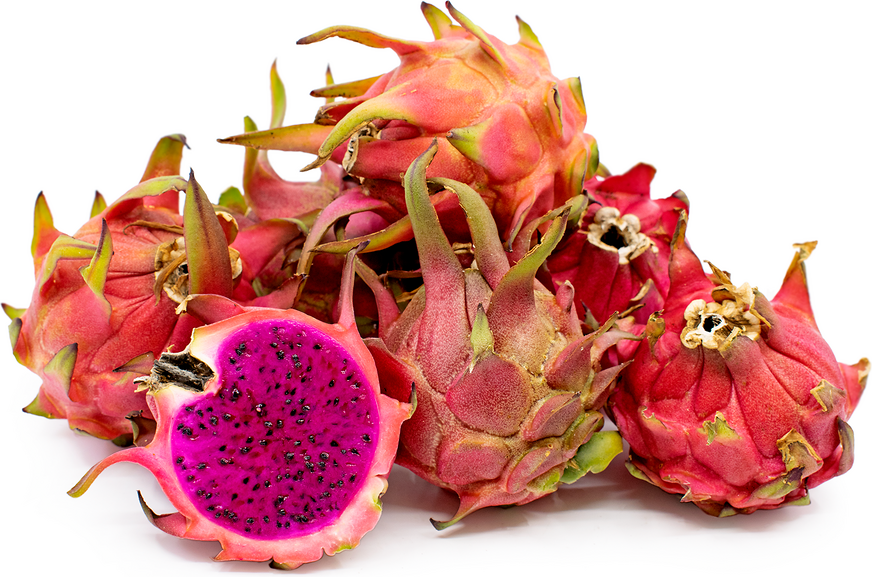


Robles Red Dragon Fruit
Estimated Inventory, lb : 0
Description/Taste
Red Dragon fruits grow on long, thin, vining cactuses that are often seen growing up trees, fences or walls. On the outside, Red Dragon fruits look almost identical to the white-fleshed variety. The brightly colored oblong fruits are about 10 centimeters in length and can weigh up to a pound. They have pink to magenta-colored skin that has the appearance of succulent, fleshy scales overlapping, leaving small, green-tipped protrusions along its length. The skin is thin, with an average thickness of only 3 millimeters, so the flesh to rind ratio is high. The bright magenta flesh of the Red Dragon fruit is the result of a compound called betacyanin, which is the same pigment present in beets and prickly pear fruit. The pulp has the texture of a kiwi fruit, with small, black edible seeds throughout. Red Dragon fruit is sweet, though not as sweet as the white-fleshed variety, and has a mild acidity.
Seasons/Availability
Red Dragon fruits are available year-round.
Current Facts
Red Dragon fruits, or Pitaya Roja, are botanically classified as Hylocereus constaricensus and sometimes Hylocereus polyrhizus. The former classification references its native Costa Rica. The red-fleshed Dragon fruits are rarer than the yellow skinned variety, and are not nearly as widely available as the white-fleshed variety. Red Dragon fruits are often called Costa Rican Dragon fruit or Purple Pitaya, and sometimes Strawberry Pear Cactus. In the United States, Florida and California produce these brightly fleshed fruits, in the off-season, they come directly from their native Nicaragua or Costa Rica.
Recipe Ideas
Recipes that include Robles Red Dragon Fruit. One
| Cherry on a Cake |
|
Dragon Fruit Jam |
| Choosing Chia |
|
Vegan Dragon Fruit Cheesecake Bars |
| Cook with Manali |
|
Vegan Dragon Fruit Panna Cotta |
| Builicious |
|
Dragon Fruit Macarons |




